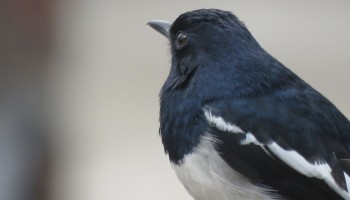The Russian-US measures may be welcome news for those who know that trade in illegal wildlife is the second largest black market in the world behind drugs. The two enterprises are actually connected. According to a 2011 Europol report, narcotics traffickers smuggle wildlife through routes already in place for moving drugs. The report notes that wildlife trade was worth some $18-26 billion in that year.
The new steps are unlikely to make a large dent in that trade, the consequences of which are endangerment and extinction of species, destruction of natural and human communities and enrichment of international criminal gangs. This is not to mention animal cruelty and deprivation of tourism in countries that depend on it.
The Russian Solution
According to a report from TRAFFIC, a wildlife trade monitoring non-profit based in the UK and with regional centers around the world, Russia's State Duma has shown its commitment to fighting the poaching and trafficking of rare species through recent legislative amendments.
The report explains that, under previous Russian law, only those caught smuggling rare animals worth more than 1 million rubles ($30,000 USD) could be criminally prosecuted. Additionally, it was hard to prosecute wildlife cases because of difficulty determining the value of animals. Now, anyone caught smuggling endangered species, regardless of value, will be prosecuted. Additionally, anyone convicted of trafficking endangered species will now be fined 1.1 million rubles ($35,000 USD).
TRAFFIC quotes their own Alexey Vaisman, who helped with the legislative review in Russia: “While this latest improvement to Russian legislation is warmly welcomed, its enforcement becomes of utmost importance.”
Wildlife trafficking is low-risk most places around the globe because of poor enforcement coupled with small fines. Europol's report emphasizes that environmental laws are ignored and animals simple to smuggle. The Internet makes selling easy, and hard for police to track. Other barriers to stemming the smuggling, according to Europol, are forged permits and declarations. And, according to a 2003 article by Mara E. Zimmerman, a J.D. Candidate at Vanderbilt University Law School at the time of publication, the low salaries of customs officials assigned to wildlife protection make them corruptible. In many countries, too few officials are assigned to fight wildlife trafficking.
Even when prosecuted, animal smugglers get off easy. The new $35,000 fine is nothing compared with the potential earnings. A recent Al Jazeera report maintains that in Vietnam, rhino horn is worth more than gold. One kilogram is priced at around $65,000. Zimmerman notes that other types of smuggling generate significantly greater penalties than wildlife trafficking. One wildlife smuggler in the US was sentenced to 46 months in prison and a $10,000 fine for a trafficking deal worth $250,000. A cocaine smuggler in comparison would face 121 to 151 months in prison and a fine of more than $175,000.
The US
The United States is a top destination for wild animals and animal products. President Obama launched a new plan in Tanzania last week to combat this problem. According to a July 1 White House Press Release, Obama is convening a Cabinet-level task force composed of the State, Interior and Justice departments to devise a strategy to slow illegal animal trade. He has earmarked $10 million for restraining poaching in Tanzania, with special attention on rhinos and elephants. The Washington Post notes that ''roughly 30,000 African elephants were killed illegally in 2012, the largest number in 20 years. ...This year alone South Africa has lost almost 450 rhinos, which could make 2013 a record for poaching of the imperiled species.''
The press release notes some innovative ways that will be employed to stop smugglers, including mobile phone apps, DNA analysis and bigger rewards for information and tips.
All good news, but $10 million to combat a $18-26 billion dollar industry is puny, and, the new strategy does not address the US-Mexico border, a key entry point for smuggled wildlife.
The Bottom Line
Ironically, at the same time these significant but small steps have been rolled out, news portals have been circulating reports that Africa's western black rhino is now officially extinct due to over-poaching. The related Javan Rhino is also believed to have disappeared. The northern white rhino remains on the brink of extinction. Rhino horns are prized in some Asian countries as a delicacy and for their purportedly medicinal value.





